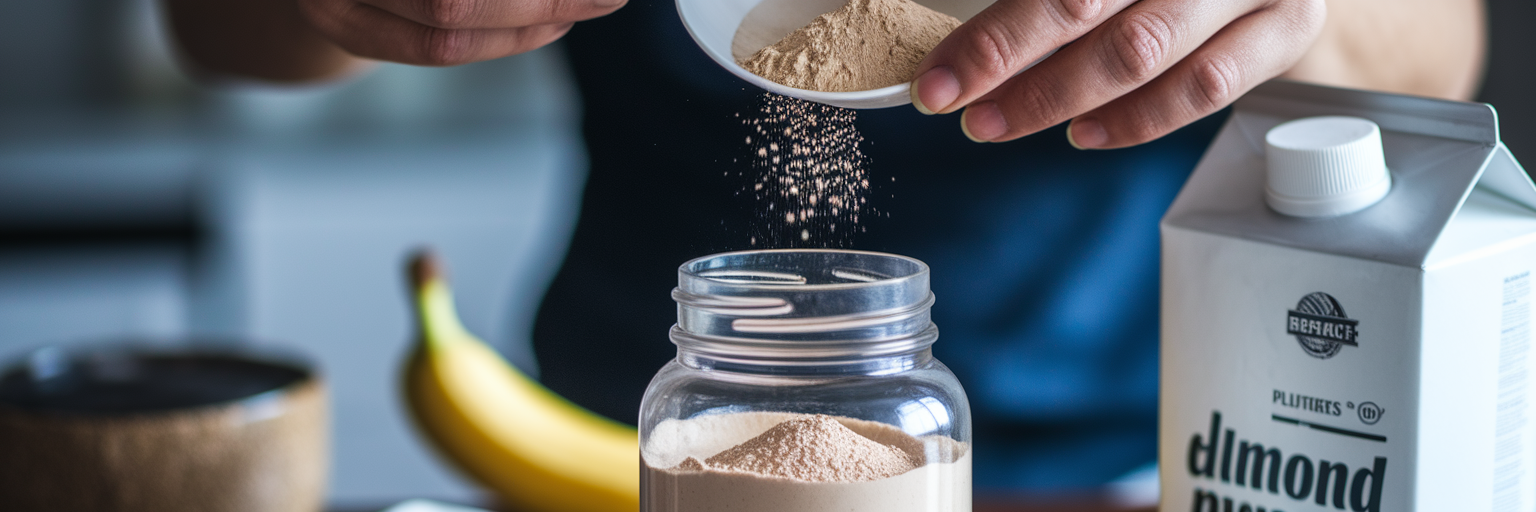Your Plant-Powered Performance Edge
As a vegan athlete in the US, your dedication is impressive. You meticulously plan your meals and navigate unique nutritional puzzles to fuel your performance, all while staying true to your principles. But when it comes to endurance, there's a common tool you might be overlooking, one often mistakenly confined to the weight room: creatine monohydrate.
Let's reframe the conversation. Forget the bodybuilding stereotypes. Think of creatine as a well-researched performance aid for the running trail, the cycling path, and the swimming lane. It’s one of the most studied plant-based endurance supplements available, with a strong track record for supporting energy production when you need it most.
The myth that creatine is only for building bulk has persisted for too long. For endurance athletes, its real value lies in its ability to support repeated, high-intensity efforts. What if you could push harder in that final mile or recover faster for your next session, all while upholding your vegan lifestyle? That's the advantage creatine can offer.
Why Vegans See Exceptional Creatine Benefits
Here’s a fascinating insight: creatine supplementation is particularly effective for plant-based athletes. The reason is simple. Creatine is naturally found in animal tissues, meaning vegan and vegetarian diets inherently lack a direct dietary source. While your body produces some on its own, your baseline muscle creatine stores are typically lower than those of omnivores.
This isn't a weakness. In fact, it’s a significant opportunity. Think of it like topping off a car's fuel tank. If you start with a tank that's half-full, adding fuel makes a much more noticeable difference than adding it to a tank that's already near the top. That’s the experience many vegan athletes have with creatine. In fact, research published in a PMC article confirms that vegetarians and vegans tend to have reduced creatine levels, creating a larger potential for improvement through supplementation.
For anyone new to the topic, understanding the foundational creatine benefits can provide even more context. The demands of endurance training often exceed what your body can naturally produce, making supplementation a logical step for any performance-focused creatine for vegan athletes. It’s about giving your body the resources it needs to meet your ambitious goals.
The Science of More Stamina

Now that we understand why vegans have more room for improvement, let's look at exactly how creatine delivers that extra stamina. The science is straightforward and translates directly into tangible performance gains on the road, trail, or in the water. The vegan creatine monohydrate benefits are rooted in a few key biological functions.
Fueling High-Intensity Efforts
Your body's main energy currency for short, powerful movements is a molecule called ATP. When you surge up a hill on your bike or unleash a finishing kick in a 10K, you burn through ATP rapidly. Creatine’s primary job is to help regenerate ATP at an accelerated rate. This means you have more immediate energy available for those crucial moments that define a race.
Buffering Muscle Fatigue
We all know that familiar "burn" in our muscles during a tough effort. This is caused by the buildup of metabolic byproducts like hydrogen ions, which lower pH and contribute to fatigue. Creatine helps buffer this acidity, allowing you to sustain a higher work rate for longer before fatigue sets in. It’s the difference between holding your pace and having to back off.
Sharpening Mental Focus
Endurance is as much a mental game as it is a physical one. Long, grueling events can drain your cognitive reserves, leading to poor decisions and a loss of focus. Interestingly, your brain also uses creatine for energy. A 2024 study published on PubMed highlighted that creatine supplementation can support cognitive function, which is vital for staying sharp and strategic during a long race.
| Mechanism | Impact on Endurance | Real-World Example for a Vegan Athlete |
|---|---|---|
| ATP Regeneration | Increased capacity for high-intensity bursts | Powering through the final sprint of a marathon. |
| Lactate Buffering | Delayed muscle fatigue and 'burn' | Sustaining a hard pace during a steep cycling climb. |
| Improved Hydration | Helps muscle cells retain water, aiding function | Maintaining performance during a hot summer triathlon. |
| Cognitive Support | Enhanced focus and decision-making | Staying mentally sharp and strategic in the late stages of an ultramarathon. |
This table illustrates the direct link between creatine's physiological functions and the practical performance gains experienced by endurance athletes. The examples are based on common scenarios faced in sports like running, cycling, and triathlon.
Finding Your Optimal Vegan Dosage
With the science clear, the next question is a practical one: how much creatine for vegans is ideal? The good news is that the approach is simple and effective. The standard recommendation is a daily dose of 3-5 grams of creatine monohydrate. Because your dietary intake is zero, you may see more significant results by sticking to the 5-gram end of that spectrum.
You might have heard about a "loading phase," which involves taking around 20 grams daily for a week to saturate your muscles more quickly. This is an option, but it’s not necessary. A consistent daily dose of 3-5 grams will achieve the exact same muscle saturation over about three to four weeks, and it’s often gentler on your system.
The most important factor is consistency. Creatine works by accumulating in your muscles over time, so taking it daily is essential to see and maintain the benefits. To make it a lasting habit, try incorporating it into a routine you already have, like mixing it into your morning smoothie or post-workout shake. Once you've decided on your daily dose, the next step is finding a pure and effective supplement, like our Creatine Monohydrate.
The Power Couple: Vegan Protein and Creatine

While creatine is powerful on its own, pairing it with vegan protein creates a combination that supports both performance and recovery. Think of them as a power couple for your muscles. Creatine provides the immediate energy for intense workouts, while protein delivers the essential amino acids needed to repair and rebuild muscle tissue afterward.
The post-workout window is an ideal time to consume this duo. Taking vegan protein with creatine helps you simultaneously replenish your energy stores and kick-start the muscle recovery process. This strategic pairing ensures your body has everything it needs to adapt to your training and come back stronger for the next session.
Creatine monohydrate is typically unflavored and mixes easily, making it a seamless addition to any protein shake. Here’s a simple recipe to get you started:
- 1 scoop of a high-quality plant-based protein like our Chocolate Vegan Protein
- 5 grams of creatine monohydrate
- 1 ripe banana (for carbohydrates and potassium)
- A handful of spinach (for micronutrients)
- 12 oz of unsweetened almond milk or water
This simple shake provides the perfect blend of nutrients to maximize your recovery. For more creative ways to get your daily protein, check out these easy vegan protein recipes.
Choosing a High-Quality Vegan Creatine
When you're ready to add creatine to your routine, you can feel confident in your choice. Virtually all creatine monohydrate on the market is synthetically produced in a lab, making it 100% vegan-friendly. There are no animal sources involved, so you can put any of those concerns to rest.
To find one of the best US supplements for energy and performance, look for these markers of quality:
- Simple Ingredient List: The label should just say "creatine monohydrate." Pure and simple is best.
- Third-Party Purity Testing: Look for certifications like NSF Certified for Sport or Informed-Sport. These guarantee the product is free from contaminants and banned substances, giving you peace of mind.
While some formulas include extra ingredients, starting with pure monohydrate is the most effective way to gauge its benefits for your body. Advocating for these high standards is important because it ensures you get a safe and effective product. Ready to fuel your performance? Explore our full collection of plant-based supplements designed for athletes like you.



